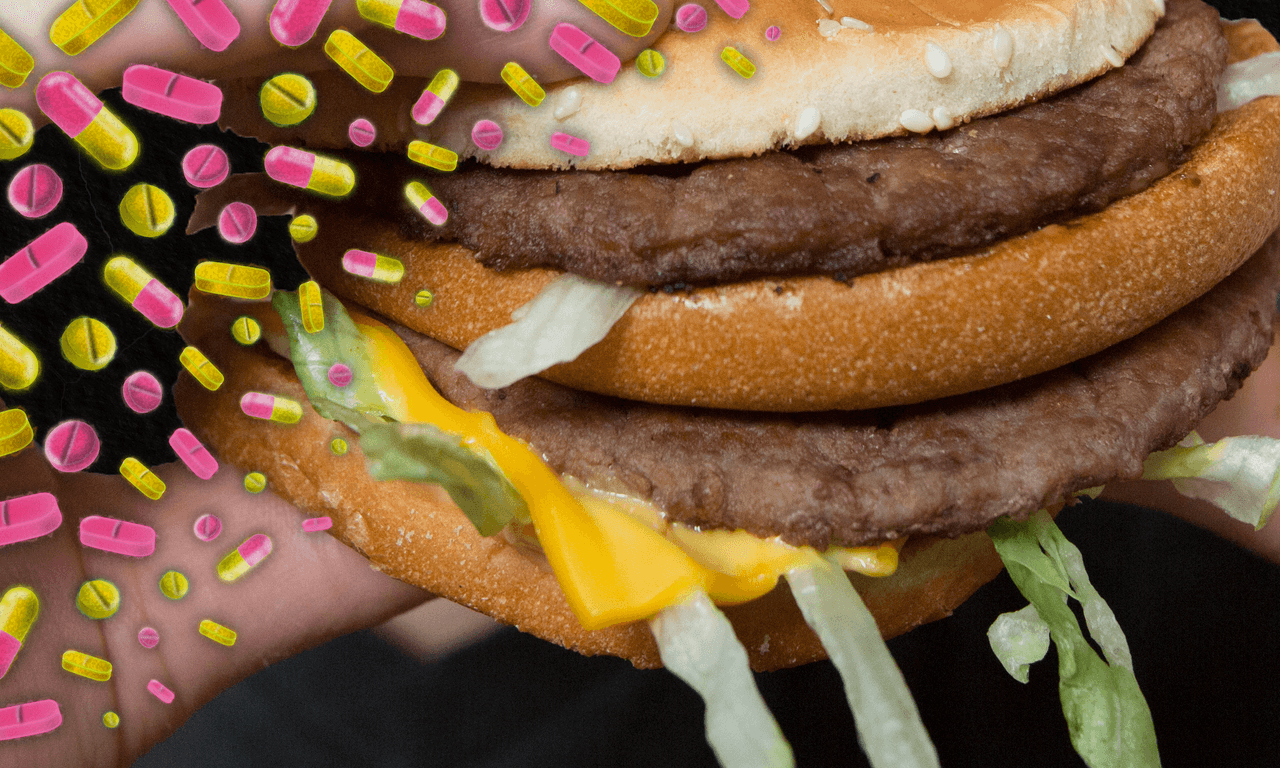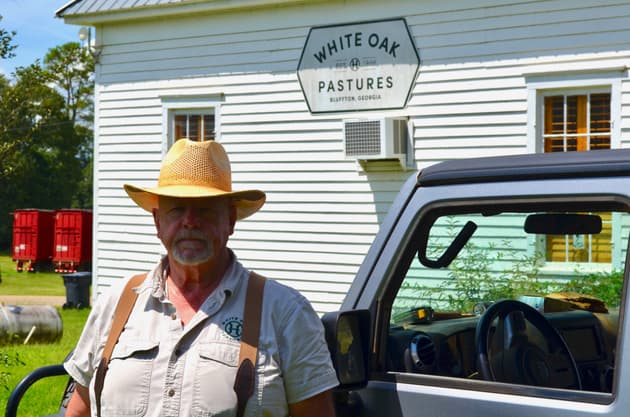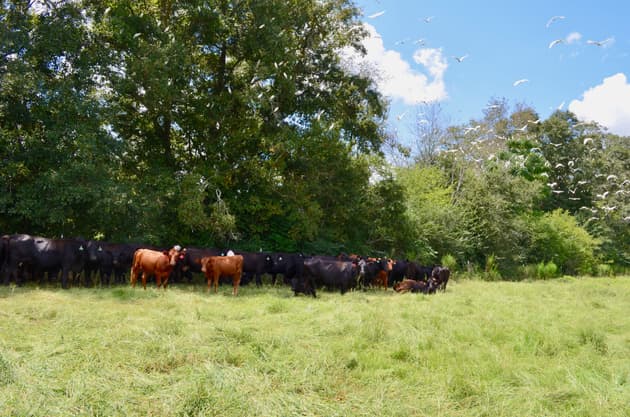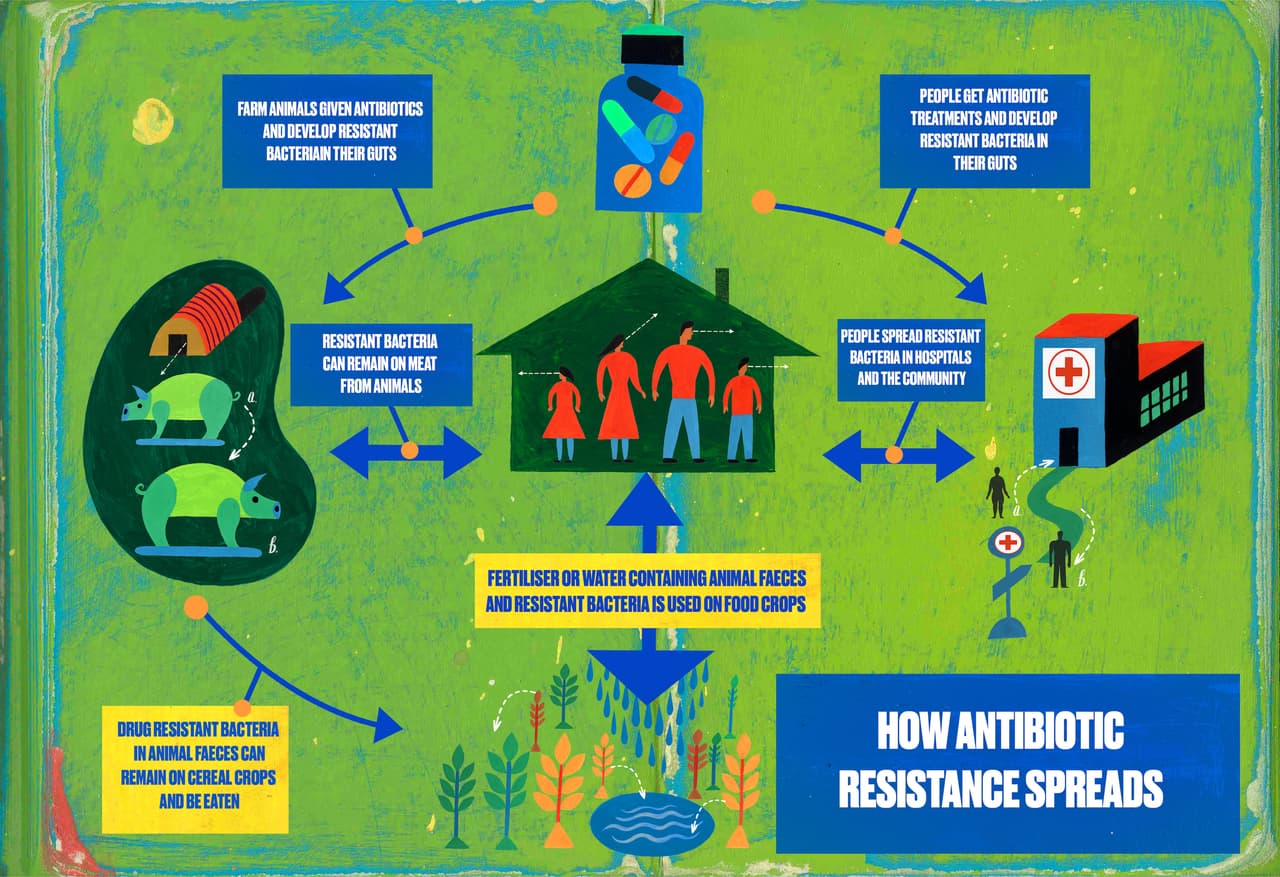
McDonald’s and Walmart beef suppliers risk public health with ‘reckless’ antibiotics use
Suppliers of beef to McDonald’s, Taco Bell and Walmart are sourcing meat from US farms using antibiotics linked to the spread of dangerous superbugs, an investigation has found.
Unpublished US government records obtained by the Bureau of Investigative Journalism and the Guardian show farms producing beef for meat packing firms Cargill, JBS, and Green Bay are risking public health by still using antibiotics classed as the “highest priority critically important” to human health (HP-CIAs).
Such drugs are so essential to human medicine that their use in livestock farming should be stopped, the World Health Organization has warned. HP-CIAs are often the last line treatments available for serious bacterial infections in humans, it has said. The overuse of such antibiotics means they can become less effective.
The findings have prompted condemnation from public health experts and campaigners.
“The reckless overuse of medically important antibiotics on factory farms is a major contributor to this deadly public health threat,” said US senator Cory Booker, who has advocated for stricter controls on how antibiotics can be used in food production. “Giant agribusinesses have built a system that is dependent on this misuse of antibiotics to maximise their profits, with no regard to the serious harm they are causing.”
Horrible unintended consequences
When Will Harris’s father farmed his land in south Georgia, the cows that now shade themselves under the trees would have been held in a dusty, featureless plain known as a feedlot, eating chicken manure and feed dosed with antibiotics.
Today, the vast White Oak Pastures looks like a savannah. It’s an expanse of grass, shrubs and trees interrupted only by red clay dirt tracks and the occasional fence.
 Will Harris turned his back on the industrial style of farming used by generations before him
Ben Stockton
Will Harris turned his back on the industrial style of farming used by generations before him
Ben Stockton
 Today, he uses antibiotics therapeutically to treat animals only when they are sick
Today, he uses antibiotics therapeutically to treat animals only when they are sick
Harris has turned his back on the industrial style of farming he learned at university and from the generations of farmers in his family. Among the major changes he made was stopping the routine use of antibiotics, which can have “horrible unintended consequences”, he said.
“My use changed abruptly,” Harris said. “Today we use an antibiotic therapeutically if we have a sick animal. Now, in the environment in which I raise my animals, we don’t have sick animals very much.”
Despite Harris moving away from these practices, many US cattle farmers still routinely use antibiotics, often for months on end.
The drugs have historically been used in industrial farming to prevent diseases from spreading. But their use – and overuse – enables bacteria to develop resistance, meaning the drugs stop working.
Antibiotic resistance is one of the gravest global public health threats. According to the Centers For Disease Control and Prevention, it is responsible for more than 35,000 deaths in the US each year, and 1.3 million globally.
Despite the risks, residues of numerous HP-CIAs and other antibiotics were present in many of the US’s beef supply chains between 2017 and 2022, testing by the Food Safety and Inspection Service (FSIS), part of the US Department of Agriculture (USDA), showed.
A Bureau and Guardian analysis of data relating to 10 of the biggest meat packers revealed that all had at least one HP-CIA in use on farms supplying their abattoirs. Several were found to have as many as seven separate HP-CIAs in use.
Cattle farms selling to JBS, which has sold beef to Wendy’s, Walmart and Taco Bell, were found to have used seven HP-CIAs. Farms serving Green Bay Dressed Beef, which has supplied the Kroger supermarket chain, also had seven in use.
Cattle suppliers to Cargill, which sells beef to McDonald’s, were found to have at least five HP-CIAs in use.
Besides these drugs, other types of antibiotics frequently used in human medicine were also found.
JBS said that, although it was not directly responsible for administering antibiotics to livestock, “we support the use of medically important antibiotics in our cattle supply under the supervision of licensed veterinarians for therapeutic use only, defined as prevention, control and treatment of disease, rather than growth promotion or improved feed efficiency”.
Cargill said: “Judicious use of antibiotics prevents sick animals from entering the food supply, and ensures that animals do not unnecessarily suffer from disease. While we support the responsible use of human antibiotics in food production, we are committed not to use antibiotics that are critically important for human medicines as defined by the World Health Organization.”
Taco Bell told the Bureau that it updated its fresh beef standards in 2019 “to require its US and Canada suppliers to restrict antibiotics important to human health in beef supply chain by 25% by 2025”.
Green Bay, Walmart, Kroger and Wendy’s did not respond to a request for comment. McDonald’s directed the Bureau to its online statement on antibiotics, which said it will “establish market-appropriate targets for use of medically important antibiotics – as defined by the WHO – in our beef supply chain.”
Superbug spread
The spread of drug-resistant bacteria in the environment represents a huge public health challenge.
“It creates an unrelenting cycle of escalation,” said Dr Sameer Patel, a specialist in infectious diseases at Lurie Children’s Hospital in Chicago. “You have to use more powerful antibiotics because you don’t want a patient to become more ill and die. And then you use those more powerful antibiotics and then eventually you get resistant to those antibiotics.”

The USDA data reveals that residues of the antibiotic ceftiofur were found in beef supplied to the major fast food chains and grocery stores. Ceftiofur is a popular drug for use in cattle reared on feedlots, in part because it’s effective against a broad range of bacteria and farmers don’t have to wait too long to slaughter cattle after it has been administered.
But there are fears that its use in agriculture is driving resistance to antibiotics used to treat infections in people.
Patel recalls an unusual case decades ago of a newborn baby with a severe infection resistant to third-generation cephalosporins, the class of antibiotic to which ceftiofur belongs.
“Nowadays, I see many young children who have resistance to third-generation cephalosporins … it’s not surprising anymore,” he said.
Until 2017, antibiotics were added to animal feed to fatten up livestock. After the US Food and Drug Administration announced a ban on the practice, the sale of antibiotics for use in agriculture dropped by a third.
Yet, since that stark dip, sales have levelled off. Farmers can still routinely use antibiotics to prevent disease, so long as they have a prescription from a vet.
“For some of the drugs that they’re using, the dosages that are used for prevention are exactly the same as what they were using for growth promotion,” said Dr Gail Hansen, a veterinarian and public health consultant. “The bacteria don’t care what you call it. They are going to do what they do, which is trying to survive. And becoming resistant to antibiotics is part of how they survive.”
McDonald’s has repeatedly dodged calls for it to set targets to reduce the use of antibiotics by farmers supplying it with beef, according to Matt Wellington from US Public Interest Research Group, one of the organisations that has pressured fast food companies on antibiotics use. In 2018, McDonald’s was praised for pledging to set targets. But four years later little progress has been made.
“McDonald’s has seemingly abandoned its commitment to set concrete targets for reducing antibiotic use in its massive beef supply chain,” said Wellington. “It’s a major blow to our ability to preserve life-saving medicines, and it sets a bad example for the rest of the industry.”
Yet, demand for cheap meat means farmers are under pressure. It took Harris years to find a responsible way to break even. When he reared his cattle on a feedlot, he said there was never a year when the farm lost money.
He says consumers are “hopelessly addicted to obscenely cheap food” but they are not the main offenders. “I think these big food companies are more part of the problem than the solution … they’re doing incredible harm to society and, at some level, probably know it.”
Header image: A McDonald’s beef burger. Credit: Ulrich Baumgarten/Contributor Getty Images
Reporters: Ben Stockton and Andrew Wasley
Impact Producer: Grace Murray
Environment Editor: Rob Soutar
Global Editor: James Ball
Editor: Meirion Jones
Production: Emily Goddard and Frankie Goodway
Fact Checker: Rachel Hamada
Our reporting on antimicrobial resistance is part of our Environment project, which has several funders. None of our funders have any influence over our editorial decisions or output
-
Subject:
-
Area:



